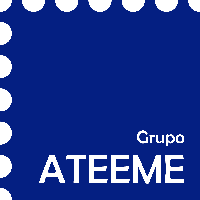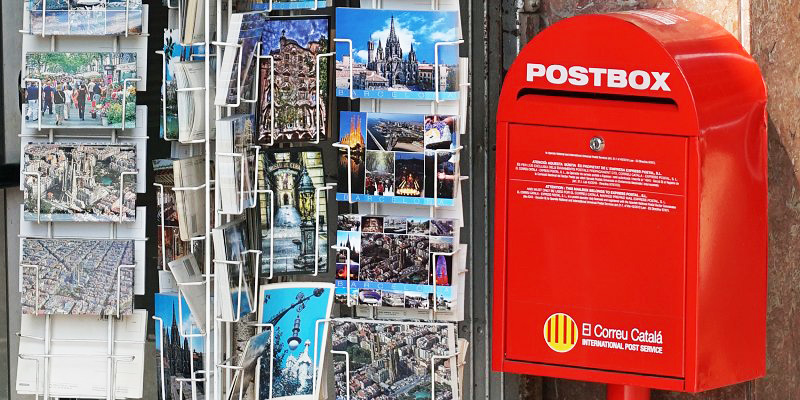Background. Tourist mail in Spain before postal liberalization
Since the mid 1990s and during the early part of this century, several private postal companies, taking advantage in the early days of the liberalization of the European postal market, set up mail collection networks at different tourist areas in Spain, for internationally destined postcards and their remailing to other countries. Postal law 24/1998, and the complaints and legal action taken by Spanish Post – Correos, who argued that these companies offered postal services, which were solely the preserve of the national postal operator, managed to put an end to most of these initiatives.
This interesting chapter of Spanish postal history has been examined in the extensive study appearing on our earlier website. It is an unpublished monograph on the remailing in Spain before liberalization of the postal market, which focuses mainly on the remailing of international tourist mail by private postal operators.
An extract of this study was also published, at the end of 2011, in the special edition of our publication VARIABLE.
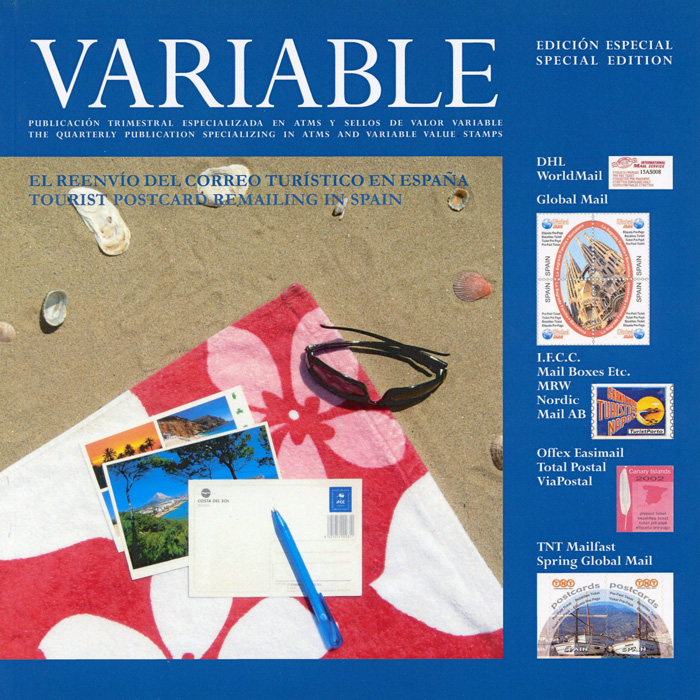
On our website www.ateeme.net and in the publications of VARIABLE you can find several articles and studies on private postal operators and, in general, the remailing of tourist mail in Spain since the mid 1990’s.
The liberalization of postal services in the European Union. The Postal Law in Spain
After some delays, the European Parliament approved the Third Postal Directive (2008/6/CE), which set December 31st 2010 as the deadline for the abolition of postal monopolies and the full liberalization of postal services in the European Union, including Spain.
In the years that followed member countries had to incorporate this major European directive into their national laws; in the case of Spain through Law 43/2010 of the Universal Postal Service or Postal Law, published on December 30th 2010. This law put an end to the public postal monopoly establishing the full liberalization of the postal sector in Spain. It designates Correos as the operator in charge of providing the universal postal service for fifteen years, and allows other authorized postal operators to offer the services that until then had been the sole preserve of Correos. Of interest to us, these services include mail weighing under 50g. and the cross-border postal service for letters and postcards.
The universal postal service is the set of postal services the provision of which is guaranteed by the State on a permanent basis throughout the national territory and at an affordable price for all customers. This service includes the collection, acceptance, sorting, transport, distribution and delivery of domestic and cross-border postal items, both letters and postcards weighing up to two kilos and packages weighing up to twenty kilos. The universal postal service also includes registration services and the associated declared value for these items.
The 2013, Law 3/2013 created the Comisión Nacional de los Mercados y la Competencia (CNMC), an advisory body that has the powers to supervise and control the postal market, and whose purpose is to guarantee, preserve and promote the proper functioning, transparency and the existence of effective competition in this sector.
In Spain several postal companies once again appeared wanting to operate in this lucrative business sector as a result of the change of rules and full postal liberalization. Tourists continue to send postcards (it has not been totally replaced by the use of newer communication technologies), and every year millions of such cards are mailed abroad from tourist areas.
The ‘tourist’ stamps
Postal Law 43/2010 did not have a specific regulation for the issue of postage stamps by private operators. However, at the end of January 2011, just a few days after the law came into force, Correos filed the first complaint against Easy Post, a large tourist postal operator created after liberalization (see article), for selling allegedly illegal franking stamps. In addition, they objected to the many postcards franked with Easy Post‘s pre-paid labels ending up, by mistake, in Correos’ mailboxes, causing serious harm to the company. This was no small problem; for example, between May and December 2011, Correos claimed to have found nearly half a million letters and postcards with Easy Post pre-paid labels in its mailboxes, and more than 250,000 in the first three months of 2012.
In the years that followed, further complaints were made against Easy Post and other tourist postal operators such as Asendia Spain S.L.U. and Express Postal, with resolutions which were mostly unfavourable to these operators.
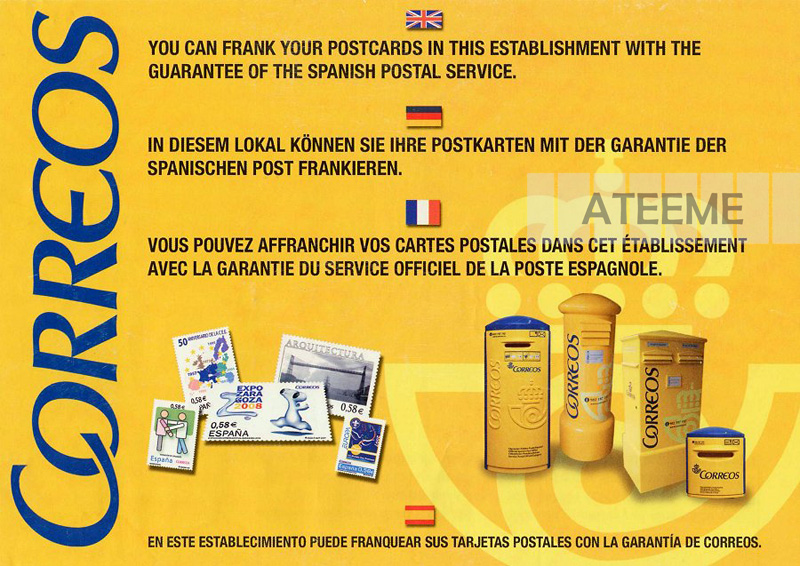
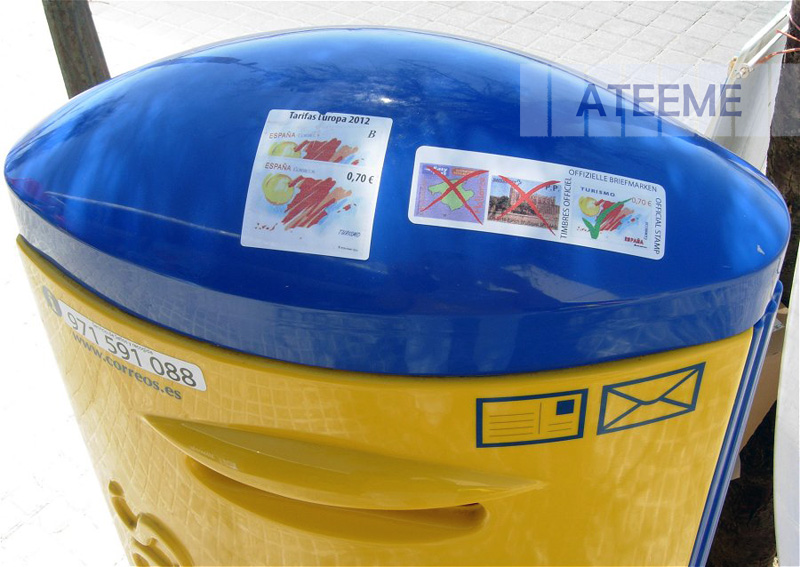
In June 2016, following an unfavourable verdict passed by the Spanish Supreme Court, Asendia Spain S.L.U. consulted the CNMC on the issue of the distribution and sale of franking stamps by private postal operators. The response did not arrive until May 2017, but confirmed that authorised postal operators could issue and sell postage stamps under certain conditions. In particular that their design should not include symbols or denominations which were specific to Correos as the designated operator (i.e. only “official” Correos stamps can include the words “España” and “Correos”), or that it could create confusion amongst customers as to the identity of the operator providing the postal service.
The CNMC also found that, despite the efforts of private postal operators encouraging customers to use their letterboxes, there remained confusion about the use of these letterboxes, and operators were not able to guarantee that every item with their postage stamps would be posted in the appropriate letterbox. In such cases, it became necessary for the operators concerned to reach agreements and put in place appropriate mechanisms to ensure that the rights of postal users were sufficiently guaranteed.
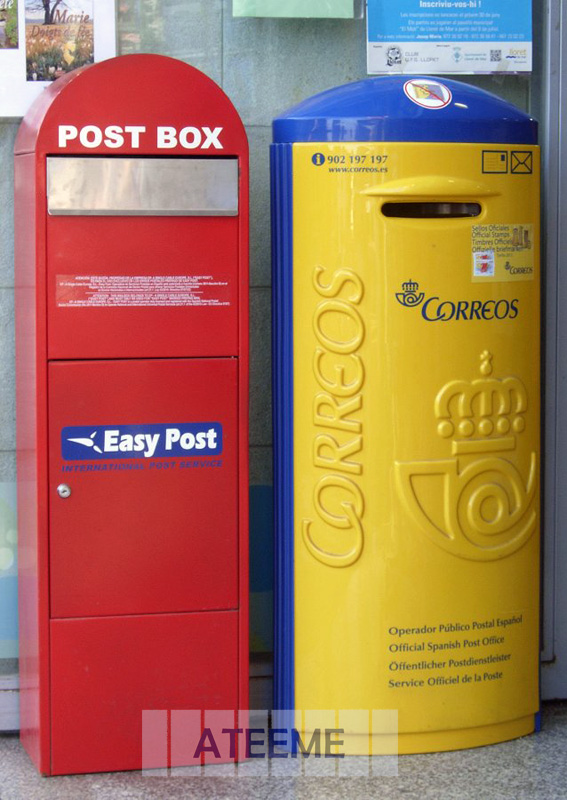
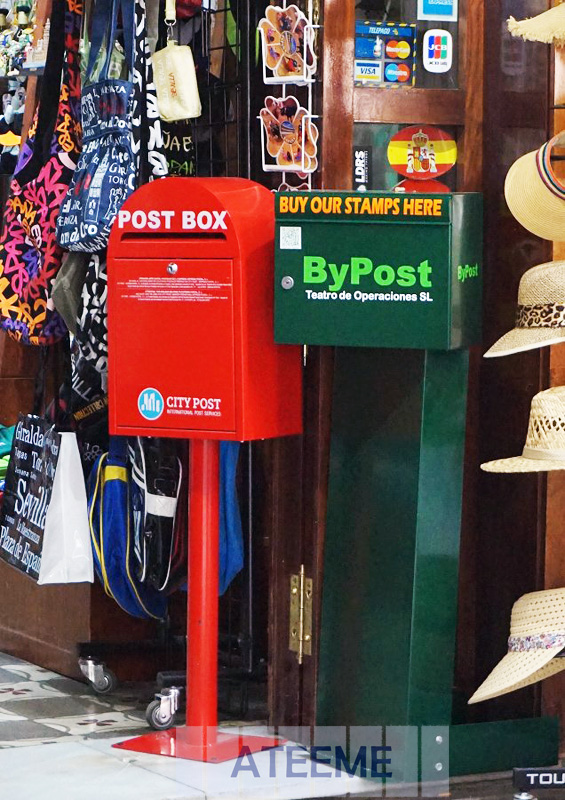
Finally, on April 30th 2024, Royal Decree 437/2024 was published, approving the postal services regulations. Article 14 establishes that “postal operators providing services included in the scope of the universal postal service may use postage stamps which while not official stamps accepts the payment as a guarantee to enable postal items to circulate through their own postal network. The stamps used by the designated operator must contain specific distinguishing features or elements to avoid any confusion with the official postage stamps”.
Tourist postal operators in Spain
Since the liberalization of the postal sector in Spain by Postal Law 43/2010 of December 30th, six private postal companies or operators specialising in the tourism sector have been established, two of which are still active at the date of publication of this article (summer 2025).
- Easy Post – International Post Service (EP-A SINGLE CABLE EUROPE, S.L.). Active from January 2011 until the summer of 2014, when it changed to Express Postal S.L. (see study and articles published in VARIABLE 26, 30, 31 & 33).
- Asendia Spain S.L.U. (La Poste and Swiss Post). Active from June 2011 to the present (Article in preparation. Article on its operations in Gibraltar, published in VARIABLE 46)
- ByPost (Teatro de Operaciones S.L.). Active from January 2014 until the pandemic (see study and article published in VARIABLE 32).
- Express Postal S.L. Active from May 2013 until the pandemic. Between March and June 2014 they created three commercial brands: Sun Post International Post Services to operate in coastal tourist areas, City Post International Post Services to operate in the main cities, and El Correu Català International Post Service to operate in Catalonia (Study in preparation).
- Post By Me (Post By Me, S.L.). Active from March 2015 to the present (see study).
- La Postal SPU (La Postal SPU S.L.). Same owner as ByPost. Active in Seville between July 2022 and 2023 (see article).
To face this competition, over the years Correos has expanded and improved its postal services in tourist areas and signed contracts with several partner companies. These companies became responsible for providing the stamps (among them, a special edition of variable value stamps – see article) and collecting mail from the special mailboxes of the so-called ‘Canal Turístico‘ (Tourist Channel). These are located in different tourist establishments (shops, bazaars, kiosks, hotels, campsites, etc). The company then delivers the mail to the corresponding Correos postal processing center (see study and article published in VARIABLE 26).
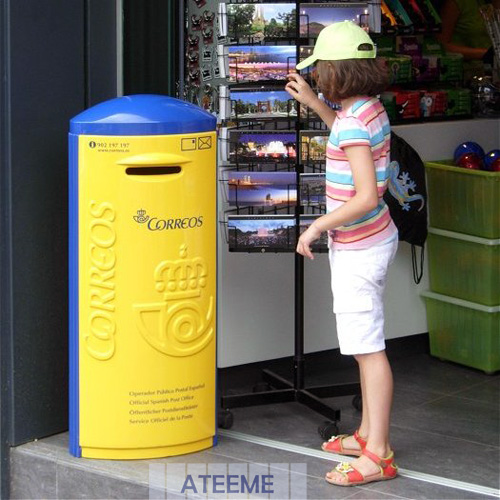
(Last updated: July 31st 2025)
(English edition rewritten by J. Gareze – August 2025)
Access to this site, and to the website in general, is monitored and its contents are protected by copyright.
The unauthorized copy of the text and / or images is prohibited
